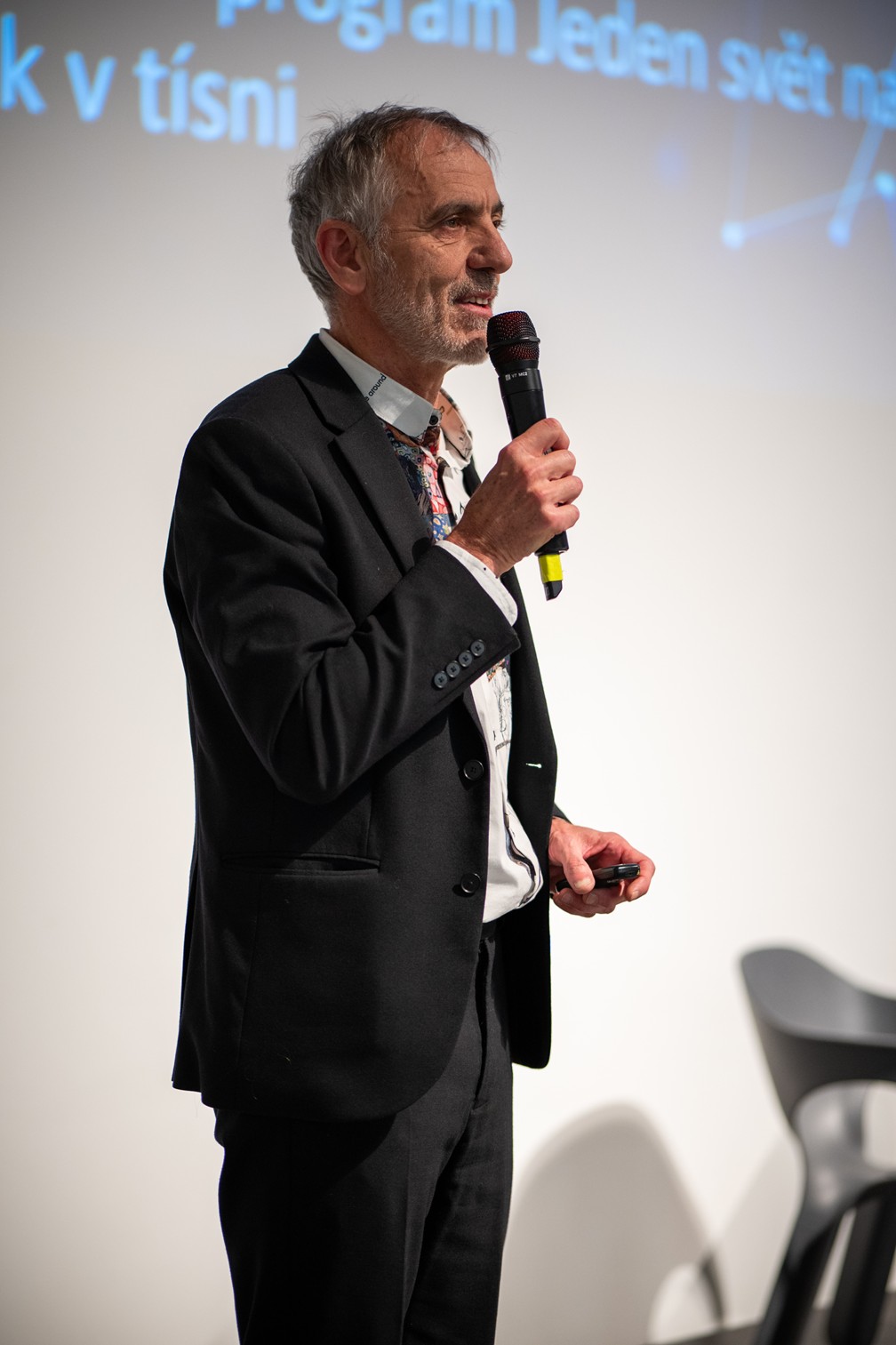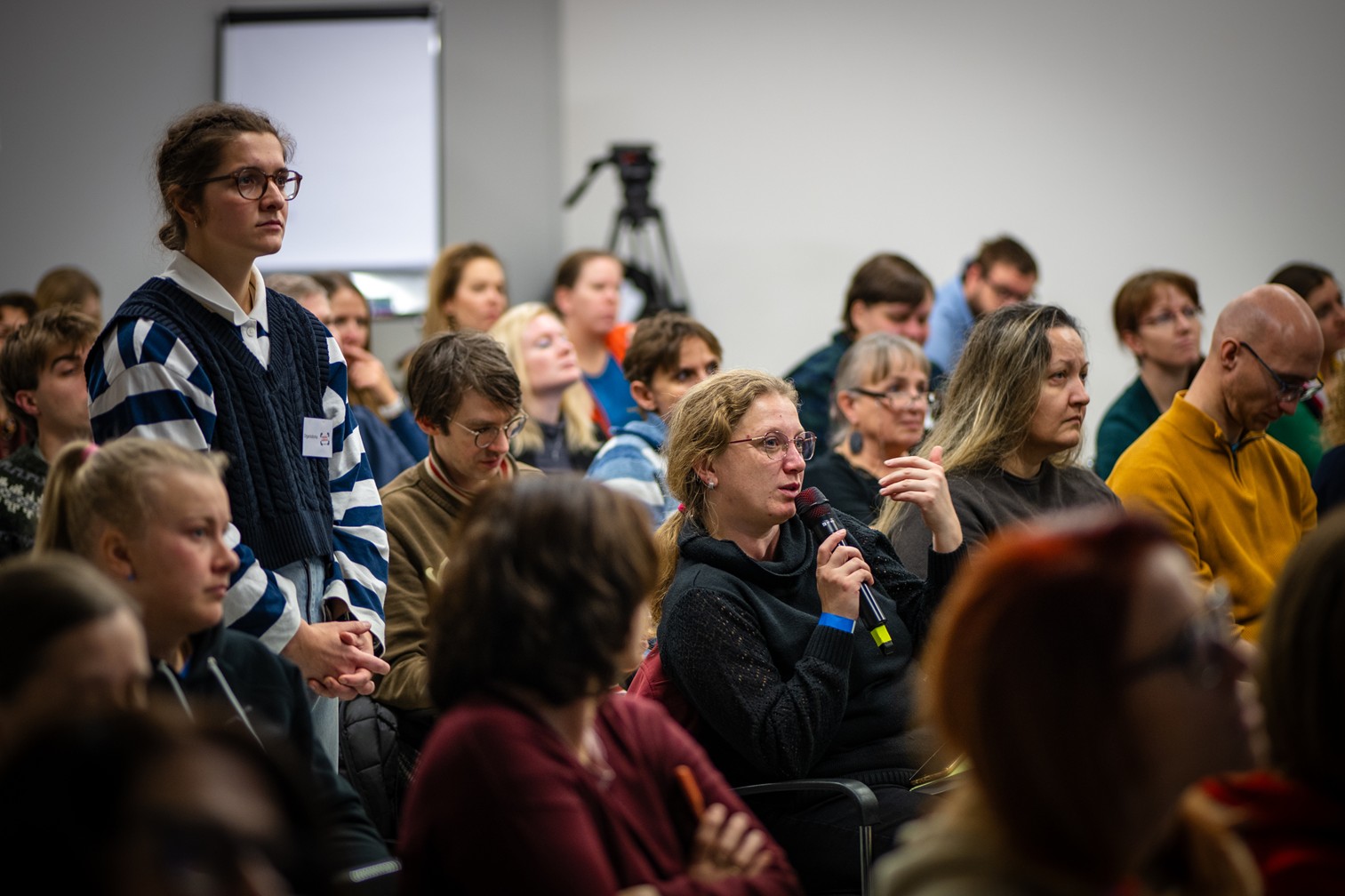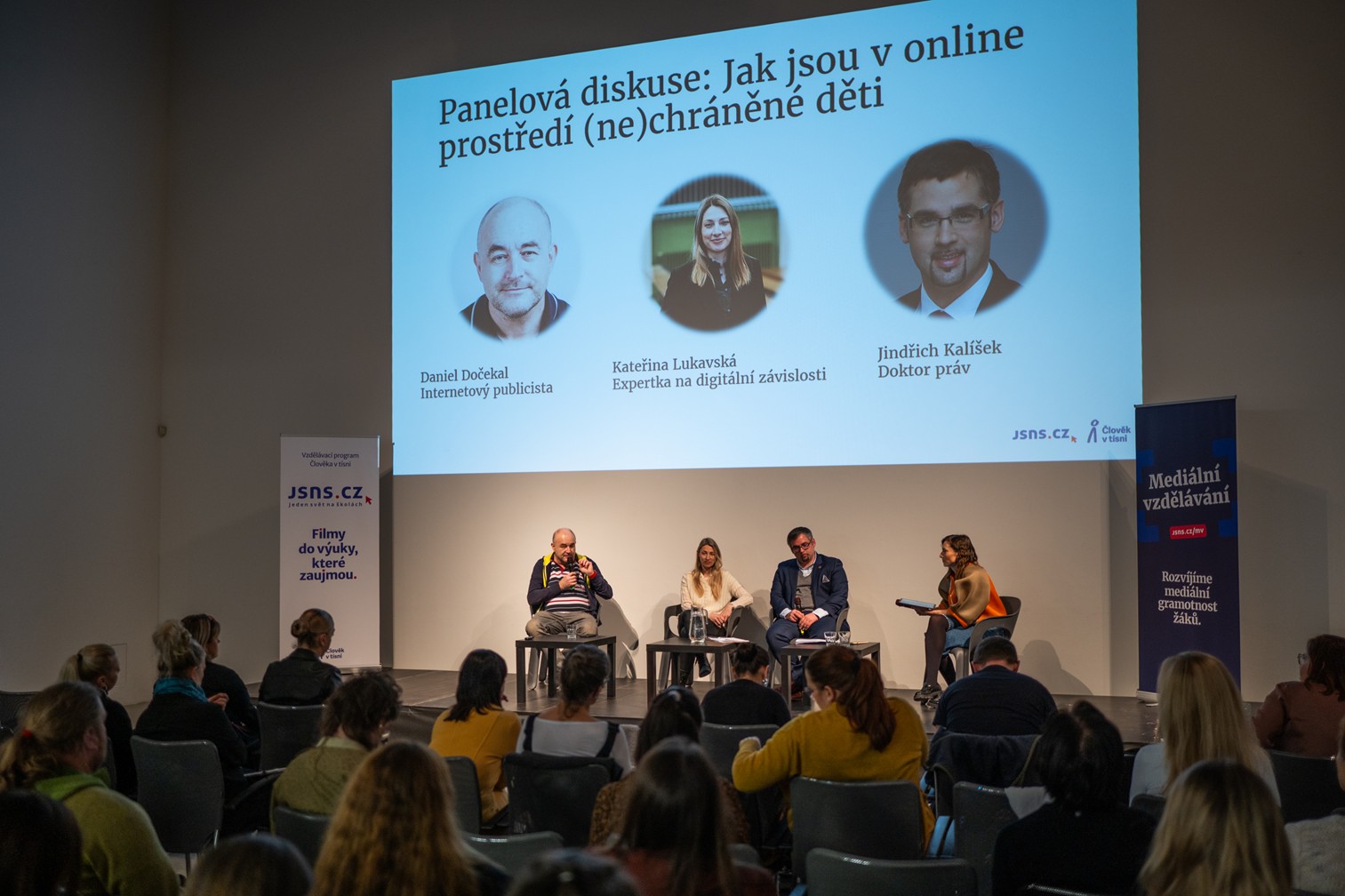Excessive screen time can limit physical activities, outdoor exposure, and real-world social interactions. But does heavy phone use equate to addiction?

Young people aged 8 to 15 spend an average of three and a half hours on their mobile devices daily, with 11 per cent exceeding six hours. But what are they doing online? Do they understand the content they consume? And can they protect themselves from potential dangers?
According to Karel Strachota, director of the 'One world in schools' program (one of four organisations forming Czech Safer Internet Centre) focusing on media education, the online environment, especially social media, presents significant risks for children. These include cyberbullying, sexting, exposure to pornography at an early age, gaming addiction, and mental health challenges. Strachota emphasises that education and prevention are key to ensuring children navigate the online world safely.

The role of education
The importance of media literacy was highlighted during the Rights and protection of children in cyberspace conference, attended by over 130 educators.

The event, organised by 'One World at Schools', introduced free teaching materials designed to guide students and parents alike. In the afternoon program, during the practical workshops, teachers had the opportunity to speak with our experts from the Safer Internet Centre: on the topic of internet safety with Martin Kožíšek, and with Kateřina Vokrouhlíková about the StopOnline service.
Is my child addicted to their phone?
Excessive screen time can limit physical activities, outdoor exposure, and real-world social interactions. But does heavy phone use equate to addiction?
Dr. Kateřina Lukavská, a digital addiction expert from Charles University, reassures parents: many children who seem "addicted" to games or social media are not truly dependent. She explains that social media and gaming stimulate dopamine production, providing a sense of happiness. When these become the primary source of pleasure, neglecting alternatives like friendships or physical activities, a dependency may develop.

Signs of true addiction include depression, aggression, or apathy when access to devices is restricted. Frequent occurrences of these behaviours could indicate a disruption in the brain's reward system, warranting professional intervention.
Prevention through balance
To prevent addiction, Lukavská stresses the importance of self-regulation. Teaching children to balance their online and offline activities early can foster healthier habits. Encouraging family discussions, outdoor activities, and setting reasonable limits on screen time can help children develop a balanced lifestyle.
By combining education, open communication, and proactive measures, parents and educators can help children safely navigate the digital world while avoiding its potential pitfalls.

Find more information about the work of the Czech Safer Internet Centre, including its awareness raising, helpline, hotline, and youth participation services, or find similar information for other Safer Internet Centres throughout Europe.
Photographs copyright: Czech Safer Internet Centre
Excessive screen time can limit physical activities, outdoor exposure, and real-world social interactions. But does heavy phone use equate to addiction?

Young people aged 8 to 15 spend an average of three and a half hours on their mobile devices daily, with 11 per cent exceeding six hours. But what are they doing online? Do they understand the content they consume? And can they protect themselves from potential dangers?
According to Karel Strachota, director of the 'One world in schools' program (one of four organisations forming Czech Safer Internet Centre) focusing on media education, the online environment, especially social media, presents significant risks for children. These include cyberbullying, sexting, exposure to pornography at an early age, gaming addiction, and mental health challenges. Strachota emphasises that education and prevention are key to ensuring children navigate the online world safely.

The role of education
The importance of media literacy was highlighted during the Rights and protection of children in cyberspace conference, attended by over 130 educators.

The event, organised by 'One World at Schools', introduced free teaching materials designed to guide students and parents alike. In the afternoon program, during the practical workshops, teachers had the opportunity to speak with our experts from the Safer Internet Centre: on the topic of internet safety with Martin Kožíšek, and with Kateřina Vokrouhlíková about the StopOnline service.
Is my child addicted to their phone?
Excessive screen time can limit physical activities, outdoor exposure, and real-world social interactions. But does heavy phone use equate to addiction?
Dr. Kateřina Lukavská, a digital addiction expert from Charles University, reassures parents: many children who seem "addicted" to games or social media are not truly dependent. She explains that social media and gaming stimulate dopamine production, providing a sense of happiness. When these become the primary source of pleasure, neglecting alternatives like friendships or physical activities, a dependency may develop.

Signs of true addiction include depression, aggression, or apathy when access to devices is restricted. Frequent occurrences of these behaviours could indicate a disruption in the brain's reward system, warranting professional intervention.
Prevention through balance
To prevent addiction, Lukavská stresses the importance of self-regulation. Teaching children to balance their online and offline activities early can foster healthier habits. Encouraging family discussions, outdoor activities, and setting reasonable limits on screen time can help children develop a balanced lifestyle.
By combining education, open communication, and proactive measures, parents and educators can help children safely navigate the digital world while avoiding its potential pitfalls.

Find more information about the work of the Czech Safer Internet Centre, including its awareness raising, helpline, hotline, and youth participation services, or find similar information for other Safer Internet Centres throughout Europe.
Photographs copyright: Czech Safer Internet Centre
- digital literacy Educational excessive use young people
Related content
- < Previous article
- Next article >












